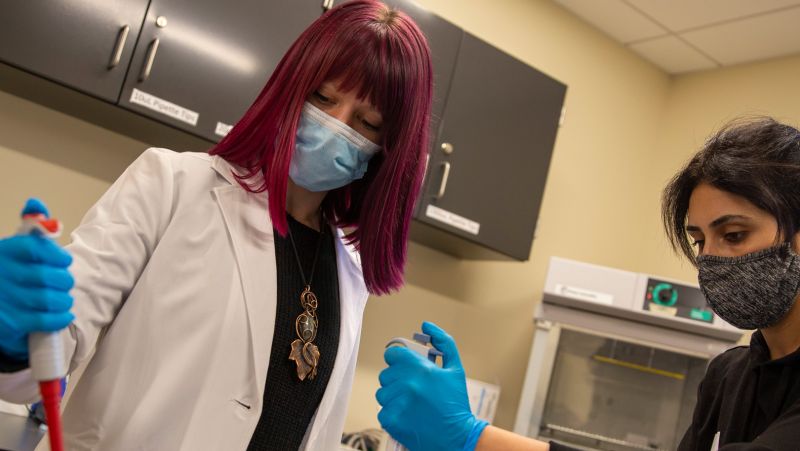
Environmental Science students CJ Berger and Gracie Wilhelm are getting experience with DNA samples that will be published in a peer review journal to help determine how human activities are impacting soil.
With the help of biology instructor Amna Alani, CJ and Gracie are able to expand their knowledge of microbiology, environmental science, and a DNA replication process called PCR that is used in a lot of research, including on Covid-19 samples.
“This is the first project that I’ve worked on that has anything to do with microbiology,” said CJ. “Now I’m getting some hands-on experience with DNA and microbiology.”
To extract and replicate the DNA, the students and instructor are using a technique called PCR – polymerase chain reaction. During PCR, the sample is exposed to temperature changes that help a replication enzyme copy the target DNA sequence. By doing this, the DNA sequence can make a billion copies in a few hours.
CJ and Gracie are working with samples from different cities in Iraq to see what kinds of microorganisms are prevalent in the soil. They will classify the species found in the soil and publish their findings, which can then be used to draw a heat map and help other scientists. In addition, the DNA results will provide information about the ecological succession of soil and how climate change and human activities affected the biological activities in soil.
It’s not without hurdles, though, as Amna explains: “You don’t know what’s going to happen with PCR. Last week the fridge stopped working.” Now they are taking the samples to SCSU to use the refrigerator there. The students will finish the DNA analysis at SCSU in the biology lab, supported by the head of the biology department there. This is a good opportunity for CJ and Gracie to interact with the faculty and build connections.
In the next couple weeks, the data should be collected and the project wrapped up. They are hoping that in the next semester, the results will be published and students will present the results at a conference.
Instructor Khaldoun Ahmad encourages his students to take on research projects while they're at SCTCC. "Individual research experience allows undergraduate students to better understand published works, value a teamwork, think individually and share thoughts, and helps students decide on a career path."
Learn more about the Environmental Science Program at SCTCC